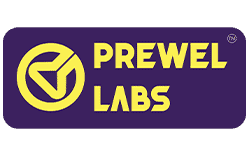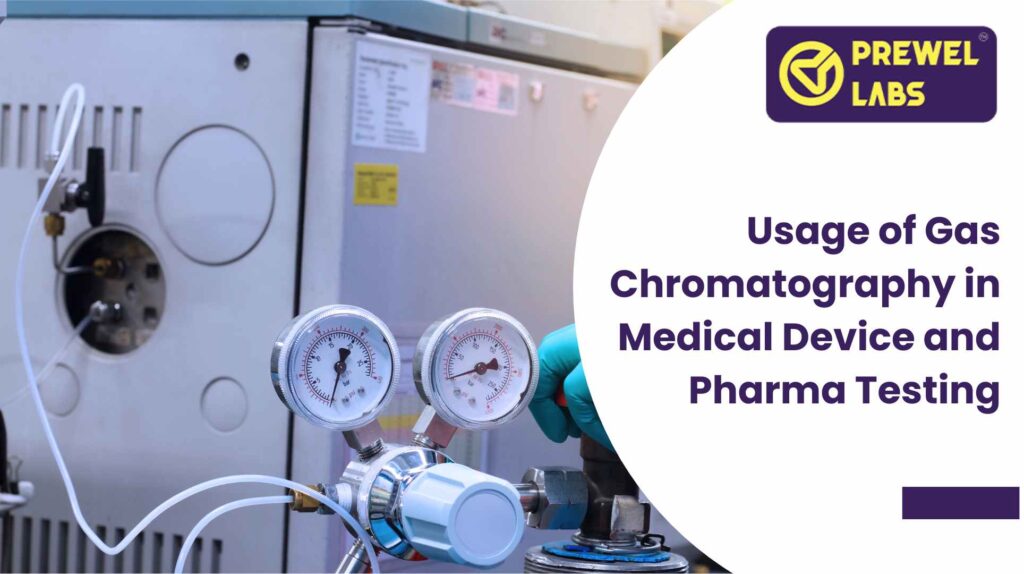Introduction to the Gas Chromatography in Medical Device Testing & Pharma
Explore the Vital Role of Gas Chromatography in Medical Device and Pharma Testing
Among the myriad analytical tools available, Gas Chromatography (GC) is standing tall as a linchpin, providing some invaluable insights into the composition and purity of substances critical to healthcare.
The Essence of Gas Chromatography:
Gas Chromatography, often likened to a molecular detective, relies on the principles of separation and analysis. Its prowess lies in the ability to unravel complex mixtures, making it an indispensable ally in the quality assurance journey of medical devices and pharmaceuticals.
Understanding Complex Mixtures
GC excels in the separation of volatile compounds, breaking down intricate mixtures into their individual components. This proficiency is particularly crucial when assessing the purity of pharmaceutical compounds or examining the materials used in medical devices.
Precision in Quantitative Analysis
When it comes to quantifying specific compounds, GC emerges as a virtuoso. Its ability to precisely measure trace amounts of substances ensures that pharmaceutical formulations and medical device materials meet stringent standards, leaving no room for ambiguity.
The Nexus Between GC and Pharmaceutical Testing
Pharmaceutical Formulation Analysis
GC plays a key role in the analysis of pharmaceutical formulations, ensuring that the intended active ingredients are present in the desired concentrations. This meticulous scrutiny safeguards the efficacy and safety of pharmaceutical products.
Impurity Detection
In pharma, the devil is often in the details. GC becomes the vigilant guardian, detecting and quantifying impurities that might compromise the quality of drugs. This capability is instrumental in meeting regulatory requirements and ensuring patient safety.
GC’s Crucial Role in Medical Device Testing
Material Characterization
Medical devices are intricate assemblies of materials with diverse properties. GC comes into play by characterizing the chemical composition of these materials, ensuring they meet the stringent standards for safety, biocompatibility, and durability.
Residual Solvent Analysis
The manufacturing processes of medical devices often involve the use of solvents. GC steps in to analyze and quantify residual solvents, ensuring that the final product is free from harmful residues that could compromise patient well-being.
Navigating Regulatory Compliance
In the tightly regulated landscape of healthcare, adherence to standards is non-negotiable. GC’s ability to provide accurate and reproducible results aligns seamlessly with the stringent requirements set by regulatory bodies. This not only ensures compliance but also instills confidence in the reliability of the tested products.
Significance
Gas Chromatography, with its unparalleled ability to dissect and scrutinize, emerges as a no-brainer in the rigorous testing processes of medical devices and pharmaceuticals. As the healthcare industry continues to evolve, the role of GC remains —an analytical powerhouse assuring the quality and integrity of the products that underpin health and well-being.
Elevating Analytical Precision with Gas Chromatography
Pharmacokinetics and Bioavailability
In pharma, understanding how a drug interacts within the body is paramount. Gas Chromatography aids in pharmacokinetic studies by unraveling the complex pathways a drug takes, shedding light on its absorption, distribution, metabolism, and excretion. This knowledge is indispensable for optimizing dosage and ensuring therapeutic efficacy.
Stability Testing
Pharmaceutical products are susceptible to degradation over time. GC steps in as a stalwart guardian, assessing the stability of drugs under various conditions. This is vital for predicting shelf life, guiding storage recommendations, and maintaining the potency of medications until the last dose.
Innovative Applications in Medical Devices
Biocompatibility Assurance
Medical devices come into direct contact with the human body, necessitating rigorous biocompatibility assessments. Gas Chromatography, by scrutinizing the materials used, ensures that medical devices are not only mechanically sound but also compatible with biological systems, minimizing the risk of adverse reactions.
Sterilization Validation
For medical devices that require sterilization, GC plays a crucial role in validating the effectiveness of sterilization processes. It ensures that no residual contaminants compromise the sterility of the devices, upholding the highest standards of patient safety.
Challenges and Future Trends
Analytical Challenge
Despite the prowess, Gas Chromatography isn’t without challenges. Overcoming issues such as matrix interference and method sensitivity remains a focal point for continuous improvement in the field. Researchers and analysts are continually refining techniques to enhance the method’s robustness.
Evolving Instrumentation
The world of analytical instrumentation is dynamic, and Gas Chromatography is no exception. Advances in column technologies, detectors, and automation are shaping the future of GC, promising even greater sensitivity, speed, and ease of use in medical device and pharmaceutical testing.
Gas Chromatography is a powerful analytical technique used to separate, identify, and quantify components within a complex mixture. In medical device and pharmaceutical testing, GC plays a pivotal role in analyzing volatile and semi-volatile compounds.
Applications in Pharma Testing
Drug Formulation Analysis: GC is instrumental in analyzing drug formulations, ensuring the presence of active ingredients and identifying impurities or degradation products.
Residual Solvent Analysis: We utilize GC for the precise detection and quantification of residual solvents in pharmaceutical products, ensuring compliance with safety standards.
Collaborative Synergy in Quality Assurance:
In the nexus of medical device and pharmaceutical testing, collaboration is key. Gas Chromatography seamlessly integrates into a holistic quality assurance framework, working synergistically with other analytical techniques like Liquid Chromatography and Mass Spectrometry to provide a comprehensive understanding of complex samples.
Final Reflection
Gas Chromatography stands as a stamp of precision, unraveling the complexities of substances that hold the key to human health. Its journey from the laboratory bench to the forefront of quality assurance is a long-standing commitment to analytical excellence—a commitment that echoes in every medical device and pharmaceutical product that reaches the hands of healthcare providers and patients worldwide.
Our services
At PreWell Labs, we employ cutting-edge Gas Chromatography (GC) techniques to ensure the highest standards in medical device and pharmaceutical testing. Our commitment to precision and accuracy makes us a trusted partner in delivering reliable results for all your quality assurance needs.
Learn more about Medical Device Testing here.

